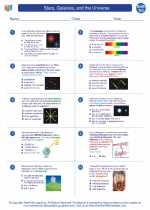Evolutionary Advantage
Evolutionary advantage refers to the characteristics or traits that enable an organism to have greater reproductive success, leading to a higher likelihood of passing on its genes to the next generation. These advantageous traits can be physical, behavioral, or physiological, and they help an organism survive and thrive in its environment.
Fitness and Adaptation
Central to the concept of evolutionary advantage is the idea of fitness, which is the measure of an organism's ability to survive and reproduce in its environment. The more fit an organism is, the more likely it is to pass on its genes to the next generation. Traits that increase an organism's fitness are considered advantageous and are favored by natural selection.
Natural Selection
Natural selection is the process by which advantageous traits become more common in a population over time. This occurs because individuals with these traits are more likely to survive, reproduce, and pass on their genes. As a result, the frequency of advantageous traits increases in the population, leading to evolutionary change.
Examples of Evolutionary Advantage
- Camouflage: Organisms with coloration or patterns that blend in with their environment have a better chance of avoiding predators, thus increasing their survival and reproductive success.
- Long neck of giraffes: Giraffes with longer necks can reach food sources that are higher up, giving them a better chance of survival and reproduction, leading to the persistence of this trait in the population.
- Resistance to disease: Organisms with genetic resistance to certain diseases are more likely to survive and pass on their resistant genes to their offspring, increasing the overall fitness of the population.
Study Guide
When studying evolutionary advantage, it is important to understand the following key points:
- The relationship between advantageous traits, fitness, and reproductive success.
- How natural selection acts on advantageous traits to drive evolutionary change in populations.
- Examples of specific traits that provide an evolutionary advantage in different species.
- The role of genetic variation and heritability in the transmission of advantageous traits.
[Evolutionary Advantage] Related Worksheets and Study Guides:
.◂Earth Science Worksheets and Study Guides High School. Stars, Galaxies, and the Universe

 Worksheet/Answer key
Worksheet/Answer key
 Worksheet/Answer key
Worksheet/Answer key
 Worksheet/Answer key
Worksheet/Answer key
